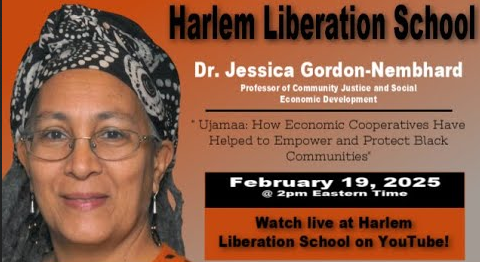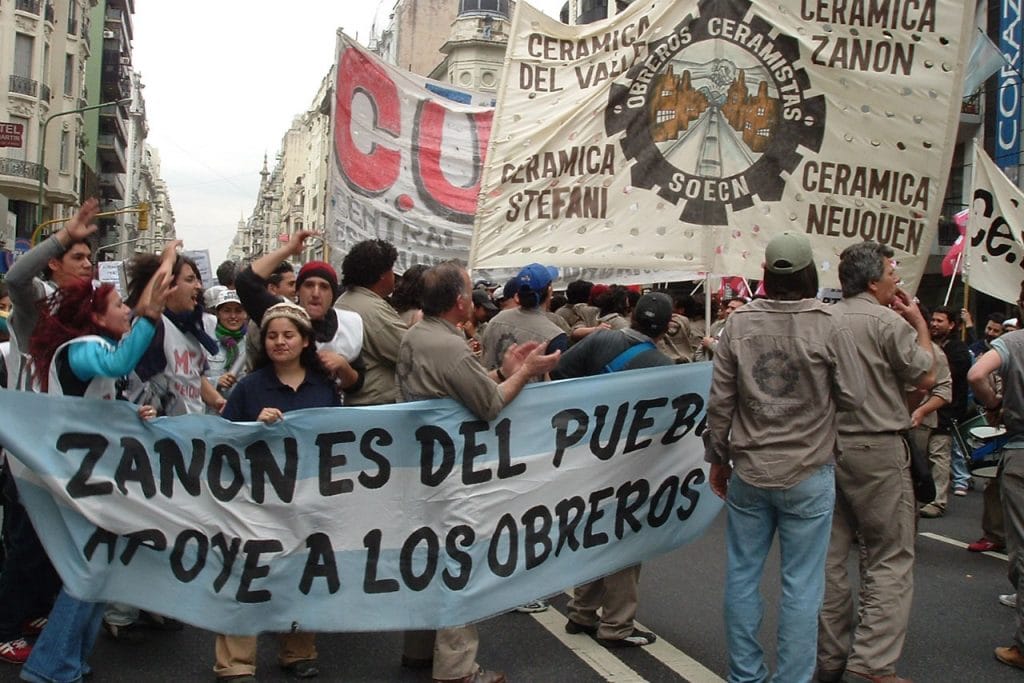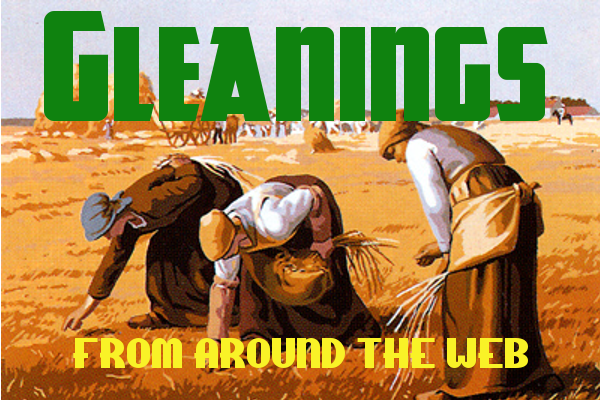This week, Jessica Gordon-Nembhard shares the history of Black cooperatives in the US and their importance in empowering and protecting their communities with the Harlem Liberation School.
Then Marcelo Vieta writes about how Argentina's worker-recuperated enterprises have created positive externalities for the revitalization and well-being of their surrounding communities.
The Power of Economic Cooperatives in Black Communities
by Harlem Liberation School
Dr. Jessica Gordon-Nembhard is a Community Justice and Social Economic Development Professor in the Department of Africana Studies at John Jay College. She is an internationally recognized and widely published political economist specializing in cooperative economics, community economic development, racial wealth inequality, solidarity economics, Black Political Economy, popular economic literacy, and community-based approaches to justice.
Saving More than Jobs
Transforming Workers, Businesses and Communities through Argentina's Worker-Recuperated Enterprises
by Marcelo Vieta
Jobs, labour processes, decision-making structures, and surpluses are thus not the only things recuperated and transformed by ERT [recuperated enterprise] workers...ERTs’ new forms of social production extend to include provisions for the social, cultural, and economic needs of surrounding communities. Hosting such cultural and community spaces and involving themselves intimately with the needs of local communities is not just a way of giving back to the neighbourhood out of self-interest or corporate social responsibility. Instead, ERT workers that host community projects tend to see their workspaces as continuations of and integral players in the neighbourhoods they are located in. Again, they gain these values informally and over time, as they enjoy rich experiences of solidarity with workmates, groups in solidarity with them, and the community at large, during the stage of occupation and beyond it as they consolidate their worker cooperative.
How Common Ground Cafe workers won a union and a cafe
Emergency Workplace Organizing Committee — [W]hen the boss found out about their union drive in July 2023, he closed the business with less than 12 hours’ notice...What the Common Ground workers pulled off next is remarkable: They organized a successful campaign to pressure their former boss to agree to a worker buy-out of the business. Today, Common Ground Cafe is open as a worker-owned cooperative, and its workers are unionized with UFCW Local 27. Those of us in the labor movement can learn a lot from how Common Ground workers built power in this seemingly-bleak situation and won collective ownership...
Rachel Carson EcoVillage to bring co-housing to McCandless Township
WTAE 4 — "They say it takes a village to raise kids," Rotz said. "Well, here in an eco-village like this, you have no shortage of babysitters right next door." To keep the neighborhood organized, organizers said they'll use "sociocracy" to govern itself, making decisions on various aspects of community life, from handling open spaces to planning meals...
Library of Things Co-Lab is back!
Shareable newsletter — We’re continuing our education series on Libraries of Things by partnering with the Tool Library Alliance to host six free monthly Co-Lab learning sessions! You can hear from experienced practitioners, ask questions, and share your own expertise...
An Atlanta Entrepreneur’s Eviction Leads to a Community Model for the World
Next City — At The Ke’nekt Cooperative, locals can find mutual aid and entrepreneurship support. Born out of Rollins’s eviction by her landlord from her hair products shop, amid growing concerns about neighborhood gentrification, Ke’nekt is now a model attracting attention around the world...
Like what you find on GEO?
Make a Donation Today!
Your tax-deductible contribution ensures that GEO can continue to provide independent grassroots content about the cooperative and solidarity economy movements.
Got something to say?
Let us know. Send your comments, suggestions, rants and article submissions to editors@geo.coop.
Follow us on Social Media
Mastodon: social.coop/@GEO_Collective
FB: facebook.com/GEOCollective
Twitter: twitter.com/@GEO_Collective
Instagram: instagram.com/grassrootsecon
Our mailing address is:
Grassroots Economic Organizing
P.O. Box 115
Riverdale MD 20738-0115




